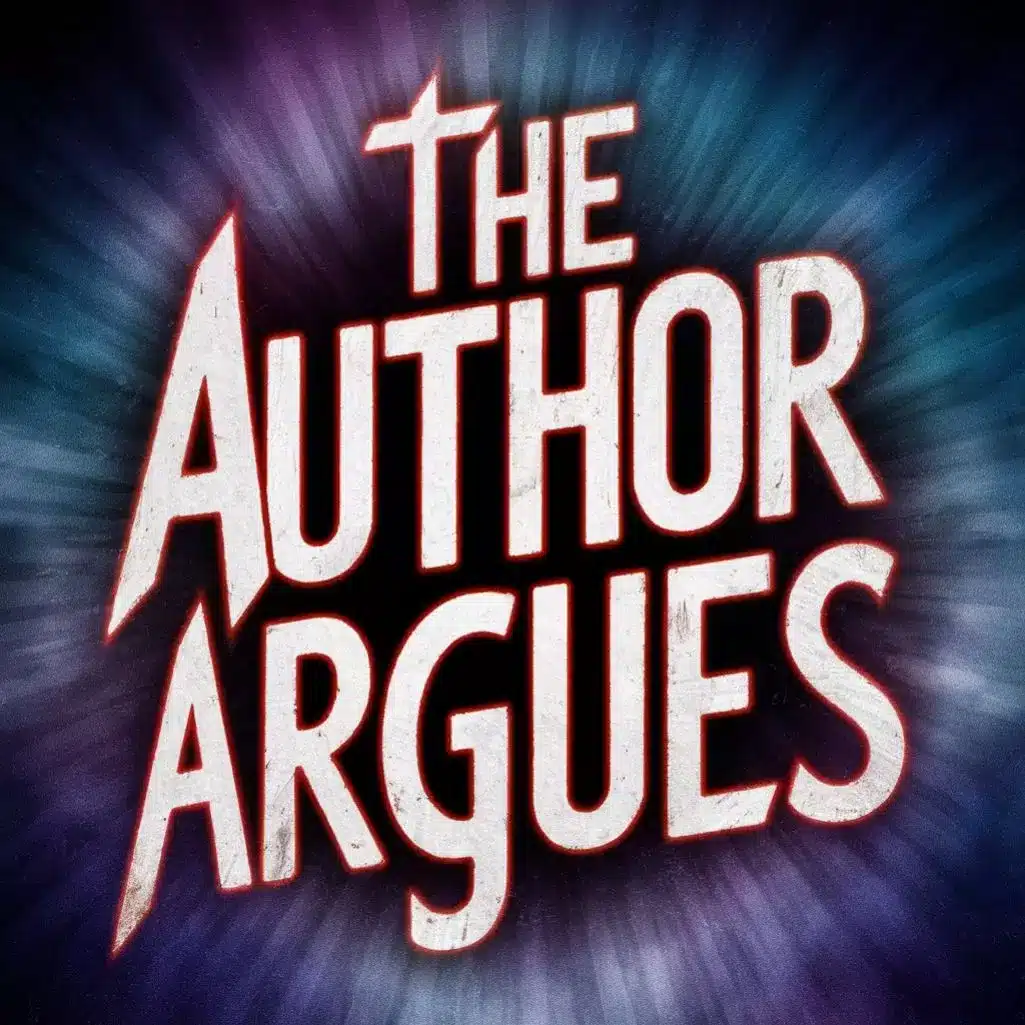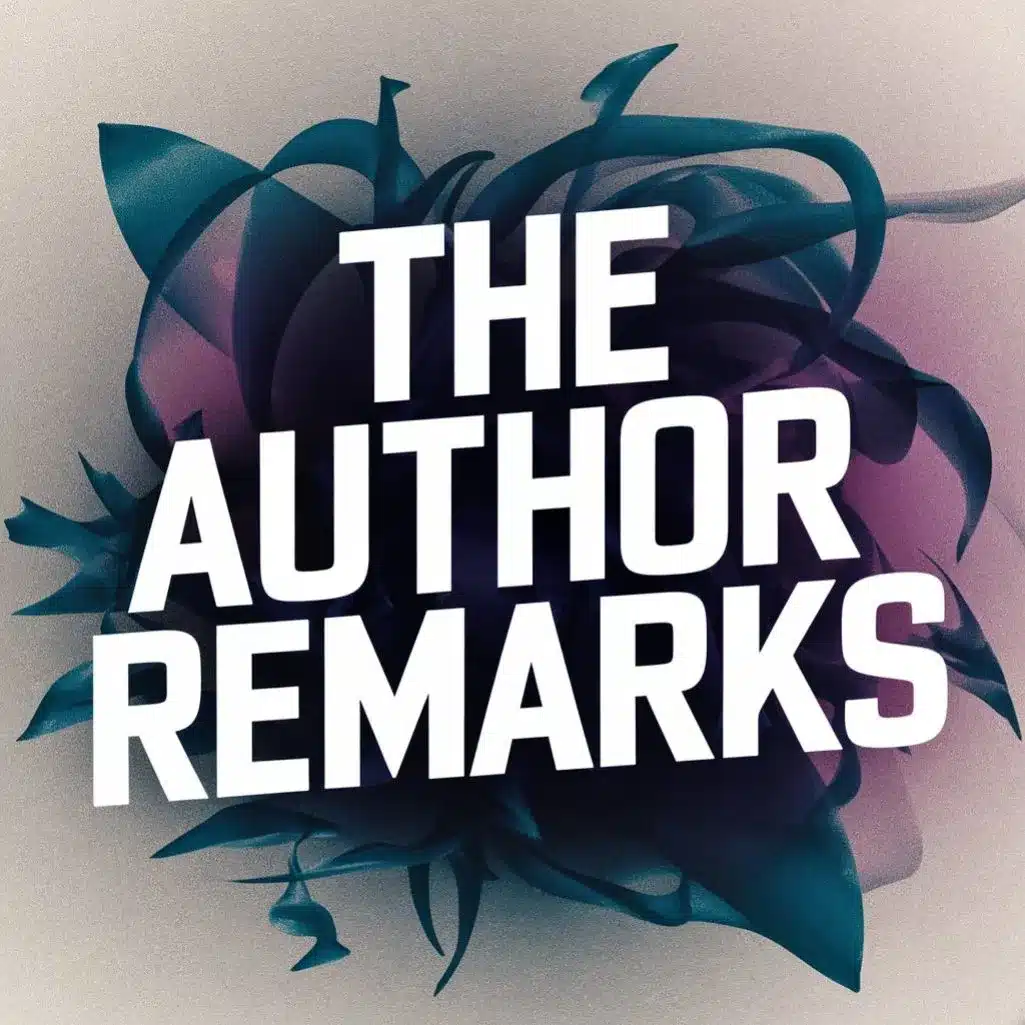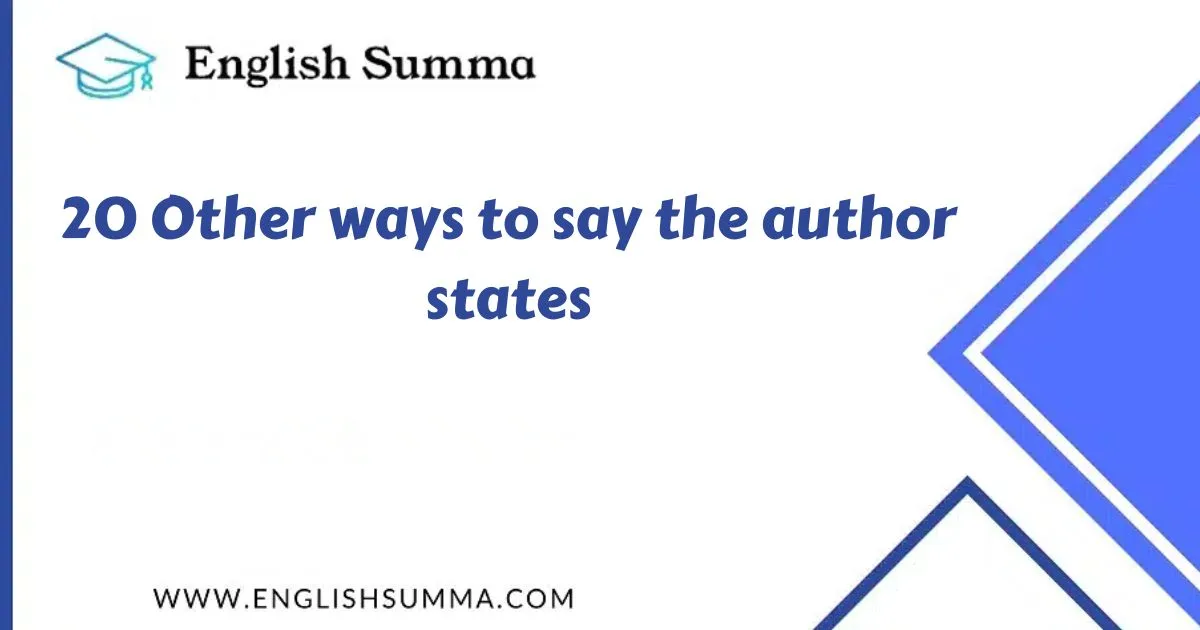In the realm of writing, especially when summarizing or analyzing texts, it’s essential to vary your language to keep the reader engaged.
Instead of repeatedly using “the author states,” there are numerous alternatives that can add variety and depth to your writing.
Below, we explore twenty different ways to convey this idea, each with practical examples to illustrate their use in different scenarios.
1. The Author Asserts
When you want to convey a strong declaration or belief from the author, “asserts” is a powerful choice.
Scenario: Academic Paper
“In his groundbreaking study on climate change, the author asserts that immediate action is necessary to prevent irreversible damage.”
2. The Author Claims
Use “claims” when the author’s statement is open to challenge or requires further evidence.
Scenario: News Article
“In her latest book, the author claims that a diet high in processed foods can lead to chronic illnesses.”
3. The Author Argues

“Argues” is suitable when the author is presenting a logical case or persuasion.
Scenario: Opinion Column
“The author argues that universal healthcare is a fundamental right that should be available to all citizens.”
4. The Author Declares
“Declares” is used for bold, confident statements often meant to inspire or provoke.
Scenario: Speech Transcript
“During the commencement address, the author declares that the future belongs to those who dare to dream big.”
Read More: Other ways to say strong work ethic
5. The Author Mentions
“Mentions” is a more casual way to introduce an idea that might not be the main focus.
Scenario: Informal Email
“Hi Sarah, the author mentions in passing that the new policy will affect our department directly.”
6. The Author Notes
“Notes” is appropriate for pointing out an observation or a detail that the author has noticed.
Scenario: Research Summary
“In her report, the author notes a significant increase in biodiversity in the protected areas.”
7. The Author Observes
Use “observes” when referring to the author’s keen insight or careful watching.
Scenario: Scientific Journal
“Through extensive fieldwork, the author observes that migration patterns are changing due to climate variations.”
8. The Author Points Out
“Points out” is ideal for drawing attention to specific details or facts.
Scenario: Instructional Guide
“The author points out that regular maintenance of machinery can significantly extend its lifespan.”
9. The Author Emphasizes
When the author wants to stress the importance of something, “emphasizes” is a good choice.
Scenario: Training Manual
“The author emphasizes the need for consistent safety protocols in the workplace.”
10. The Author Explains
“Explains” is best used when the author is clarifying or making something understandable.
Scenario: Technical Documentation
“The author explains the complex process of data encryption in a step-by-step manner.”
11. The Author Suggests
“Suggests” is useful when the author is offering a recommendation or hinting at a possibility.
Scenario: Proposal
“In her proposal, the author suggests several strategies for improving employee engagement.”
12. The Author Highlights
“Highlights” is used when the author brings particular attention to a significant point or feature.
Scenario: Book Review
“The author highlights the importance of cultural heritage in shaping national identity.”
13. The Author Reports
“Reports” is suitable for presenting findings or describing events as factual information.
Scenario: News Report
“The author reports that the recent earthquake caused extensive damage across the region.”
14. The Author Remarks

“Remarks” is a more casual term, often used for a brief, insightful comment.
Scenario: Casual Conversation
“During the meeting, the author remarks on the need for greater innovation in our product line.”
15. The Author Indicates
“Indicates” is used when the author shows something indirectly or implies it.
Scenario: Academic Journal
“The author indicates that further research is needed to confirm these preliminary findings.”
16. The Author Comments
“Comments” is a versatile term for when the author is giving an opinion or reaction.
Scenario: Online Forum
“The author comments that the new software update has significantly improved performance.”
17. The Author Contends
“Contends” is used for strong, often disputable, arguments or positions.
Scenario: Debate
“The author contends that the current educational system fails to address the needs of all students.”
18. The Author Expresses
“Expresses” is appropriate for conveying the author’s feelings or thoughts.
Scenario: Personal Letter
“In her heartfelt letter, the author expresses her gratitude for the unwavering support.”
19. The Author Reveals
“Reveals” is used when the author uncovers something previously unknown or hidden.
Scenario: Investigative Report
“The author reveals a series of corruption scandals within the local government.”
20. The Author Conveys
“Conveys” is best for when the author is transmitting a message or idea.
Scenario: Art Critique
“Through her painting, the author conveys a deep sense of melancholy and loss.”

